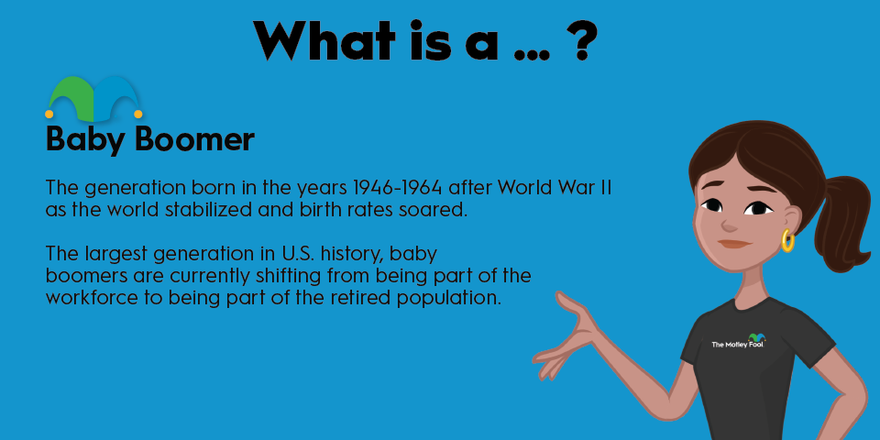The Ethical Secrets of Baby Boomers
Image courtesy of Suzy Hazelwood via Pexels
Table of Contents
- Understanding Baby Boomers
- Work Ethic Characteristics of Baby Boomers
- Values Emphasized by Baby Boomers
- Impact on the Modern Workplace
- Bridging the Generational Gap
- Conclusion
Baby Boomers, born between 1946 and 1964, have made an indelible social and economic mark. As they continue to play an influential role in the modern workforce, it’s crucial to understand their work ethics and values. In this blog post, we delve into the principles that have shaped the Baby Boomer generation and examine their impact on today’s workplaces.
Understanding Baby Boomers
“Baby Boomers” refers to the generation of individuals born after World War II, during significant population growth. Now in their late 50s to late 70s, these individuals constitute a sizable portion of the global workforce. According to recent statistics, there are approximately 71 million Baby Boomers in the United States alone, and their influence extends far beyond the country’s borders.
Work Ethic Characteristics of Baby Boomers
Baby Boomers are often characterized by their strong work ethic, shaped by the historical events and societal norms that defined their upbringing. Growing up in an era of economic growth and stability, they were instilled with values emphasising hard work and determination. This work ethic remains a defining trait of Baby Boomers today.
Baby Boomers prefer traditional work structures and are accustomed to long hours. They associate success with perseverance and view a strong commitment to their job as a key ingredient for advancement. Their dedication often translates into unwavering loyalty to their employers, as they believe in the importance of long-term commitments and establishing lasting professional relationships.
Another notable aspect of Baby Boomers’ work ethic is their emphasis on face-to-face communication and personal relationships in the workplace. They prioritize the value of direct interaction over digital mediums, valuing the human connection to foster trust and cooperation.
Values Emphasized by Baby Boomers
Embedded within the work ethics of Baby Boomers are their core values, which have shaped their professional lives and continue to influence how they approach work. Among these values is a strong emphasis on hard work, considering it not only a means to a financial end but also a source of personal fulfilment and self-worth.
Financial stability is another principle highly valued by Baby Boomers. Having witnessed economic fluctuations and instability throughout their lives, they place great importance on securing their financial future through their careers. Career progression is vital to this pursuit, as Baby Boomers often associate job advancements with increased financial stability.
Teamwork and collaboration are highly valued by Baby Boomers, who understand the benefits of pooling individual strengths to achieve collective success. They recognize the value of diverse perspectives and the importance of working harmoniously to accomplish shared goals. Baby Boomers foster an environment of cooperation and believe that organizations can reach their fullest potential through teamwork.
Furthermore, Baby Boomers demonstrate a strong commitment to professional growth and continuous learning. They understand that staying relevant in a dynamic work environment necessitates adapting to the latest technologies and industry developments. Baby Boomers often seek opportunities for training and education to keep their skills sharp and contribute meaningfully to their organizations.
Impact on the Modern Workplace
Baby Boomers’ work ethics and values can have positive and negative implications in the modern workplace. As the generational makeup of organizations becomes increasingly diverse, clashes between Baby Boomers and other generations may occur. Variances in work styles, technological skills, and communication preferences can create tension and hinder collaboration.
However, it’s crucial to acknowledge the immense benefits Baby Boomers bring to the table. Their extensive experience and wisdom, gained over decades of employment, provide invaluable insights and guidance to younger generations. Baby Boomers’ strong work ethic and dedication serve as a benchmark for commitment and reliability, setting high standards within the workplace.
Baby Boomers may face challenges adapting to today’s fast-paced, technology-driven work environment. However, organizations need to recognize and leverage their work principles. Companies should provide learning opportunities to help Baby Boomers bridge the technology gap and cultivate an environment that values their vast experience alongside technological advancements.
Bridging the Generational Gap
Intergenerational collaboration is crucial for the success of modern workplaces. It is essential to foster understanding among Baby Boomers and other generations to bridge the generational gap and create a harmonious work environment.
Image courtesy of via Google Images
Mentorship programs can be a valuable tool for passing on the wisdom and knowledge of Baby Boomers to younger colleagues. By creating opportunities for mentorship and reverse mentoring, organizations can facilitate the exchange of ideas and bridge the gap between Baby Boomers and younger generations.
Open dialogue and respectful communication are essential in establishing a foundation of understanding and empathy. By encouraging open discussions about work styles, preferences, and values, organizations can foster an environment where all generations feel heard and valued.
Embracing diversity should also be a priority. Recognizing and appreciating the variety of work ethics and values across generations can lead to better collaboration and more comprehensive decision-making within the workplace.
Conclusion
Baby Boomers have significantly influenced the modern workforce with their distinct work ethics and values. Their strong work ethic, rooted in historical events and societal norms, has shaped their commitment to hard work and loyalty. The values they prioritize, such as teamwork and professional growth, contribute to a vibrant and successful work environment.
While generational differences can present challenges, organizations must recognize the value of Baby Boomers’ work ethics and values. By fostering intergenerational collaboration, creating learning opportunities, and embracing diversity, organizations can leverage the unique strengths of each generation and ensure a harmonious and productive workplace.

